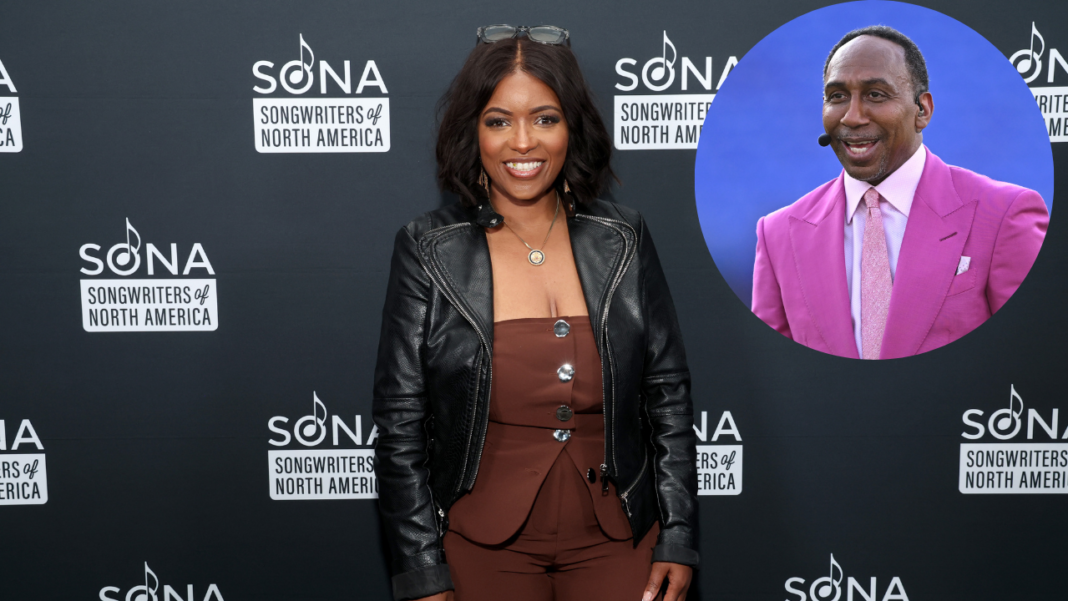The Exchange Between Stephen A. Smith and Rep. Jasmine Crockett
In a month-long saga that captured the attention of both political and sports fans, ESPN host Stephen A. Smith found himself embroiled in a back-and-forth dialogue with Rep. Jasmine Crockett (D-TX). Although the exchanges were heavily one-sided initially, they culminated in a public remark from Crockett that added layers to the conversation about race, representation, and accountability.
The Catalyst: Smith’s Criticism
The discourse began on October 14, during an episode of Smith’s podcast, Straight Shooter. In his commentary, he critiqued Crockett’s delivery and effectiveness in Congress. This was not an isolated incident; Smith has a history of critiquing Black women in similar contexts, which raised eyebrows and fueled major backlash online. The substantive nature of Crockett’s work seemed to get overshadowed by Smith’s personal judgments, triggering a larger conversation about how influential men in the media engage with Black women.
Crockett Responds on TSR Live
Fast forward to October 30, Crockett appeared on TSR Live, stating her thoughts on Smith’s remarks. “When I first heard the comments, I was disappointed,” she shared, emphasizing the emotional weight of being criticized by a Black man in a public forum. This sentiment resonated deeply, as she explained that other types of criticism were expected, but receiving such commentary from someone within her own community was particularly disheartening.
The Emotional Weight of Public Critique
Crockett elaborated on why Smith’s remarks struck a nerve. “In the work that I do, I anticipate there will be plenty of racists or people on the other side who will criticize me,” she said, underscoring her resilience against standard political pushback. However, the harsh words from Smith felt more complicated because they came from a figure who has wielded significant influence in sports media. “But for a Black man, especially in a time when Black women are under attack… I just felt a way,” she noted, highlighting the dual burden of race and gender that many women of color face.
A Call for Cultural Sensitivity
Crockett described Smith’s comments as “disappointing from a cultural standpoint.” She pointed out that his past criticisms of other prominent Black women, like Serena Williams, highlighted a troubling trend: powerful men in media can often disregard the contributions and struggles of outspoken Black women. Crockett’s response wasn’t just about herself; it embodied a larger message about solidarity and the importance of uplifting, rather than diminishing, leaders within the community.
Moving Forward: Acceptance and Shift in Focus
When questioned about whether she accepted Smith’s public apology, Crockett was pragmatic. “If you hadn’t gotten smoke, would you have done it?” she laughed, indicating a readiness to move on despite the discomfort of the initial exchange. Her focus quickly shifted back to her constituents and the critical issues they face, asserting that they understand the real threats come from politics and policies, not her communication style.
The Broader Implications of the Exchange
Crockett’s remarks and Smith’s initial critique call attention to a vital issue: the intersection of race, gender, and media representation. As influential figures continue to shape narratives, the responsibility to provide thoughtful commentary and consideration becomes crucial. The incident not only affected the individuals involved but also opened up a dialogue about how similar scenarios can play out in various spheres of public life.
As the conversation continues, it serves as a reminder of the power dynamics at play and the need for accountability, mutual respect, and understanding within all communities.



